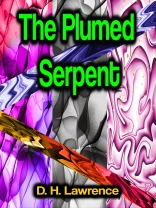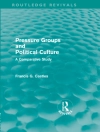The Plumed Serpent D. H. Lawrence – Lawrence wrote The Plumed Serpent between 1923 to 1924 a time when he was in ill health, living in Mexico and becoming dependent on his wife Frieda.The plot revolves around a movement to replace the Christian God with the old pre-conquest gods, such as Quetzalcoatl, the plumed serpent of the title. Kate Leslie, an Irish woman, gets caught up in the movement and marries one of the leaders but to the very end of the novel is ambivalent towards the aims of the movement. Lawrence uses the story to propound his own views about religion and the need for woman to sublimate herself before man and the need for a new political order. This all seems deliciously old-fashioned and misplaced now but we forgive Lawrence because of the beauty of his writing and his ability to get beneath the surface of the country he describes.
Despre autor
David Herbert Richards Lawrence was an English writer of the 20th century, whose prolific and diverse output included novels, short stories, poems, plays, essays, travel books, paintings, translations, literary criticism, and personal letters. His collected works represent an extended reflection upon the dehumanizing effects of modernity and industrialisation. In them, Lawrence confronts issues relating to emotional health and vitality, spontaneity, human sexuality and instinct.Lawrence’s opinions earned him many enemies and he endured official persecution, censorship, and misrepresentation of his creative work throughout the second half of his life, much of which he spent in a voluntary exile he called his ‘savage pilgrimage.’ At the time of his death, his public reputation was that of a pornographer who had wasted his considerable talents. E. M. Forster, in an obituary notice, challenged this widely held view, describing him as ‘the greatest imaginative novelist of our generation.’ Later, the influential Cambridge critic F. R. Leavis championed both his artistic integrity and his moral seriousness, placing much of Lawrence’s fiction within the canonical ‘great tradition’ of the English novel. He is now generally valued as a visionary thinker and a significant representative of modernism in English literature.












